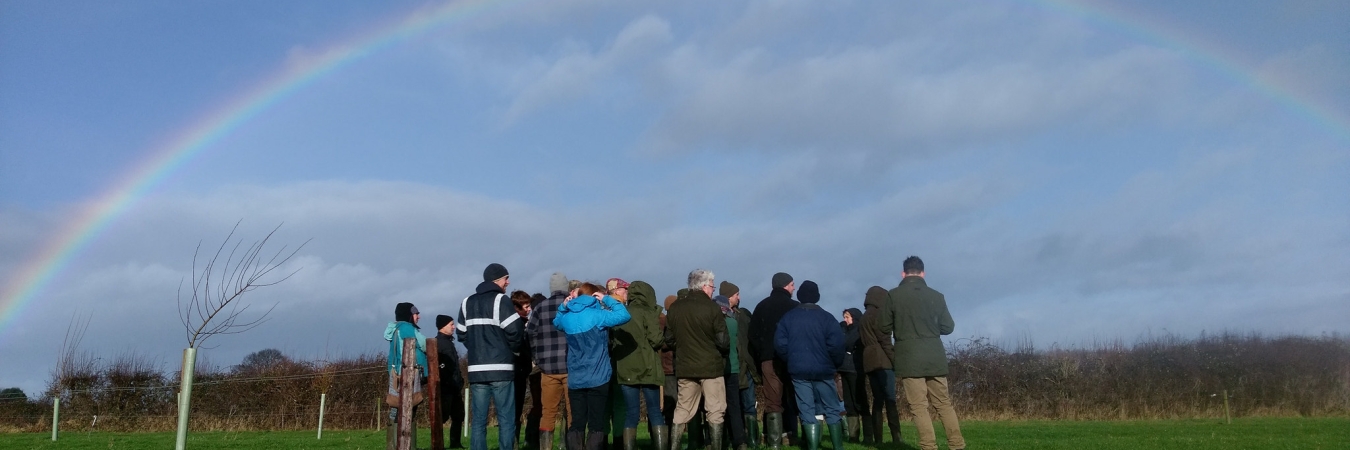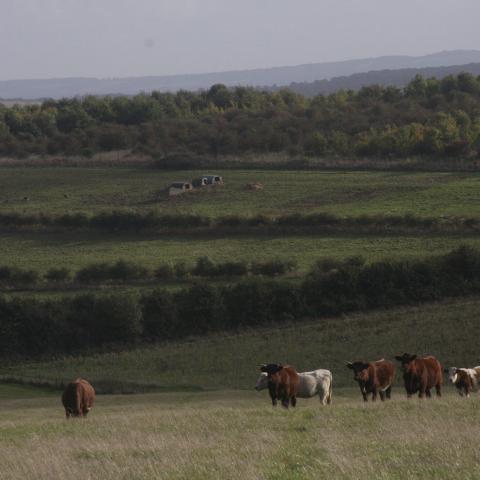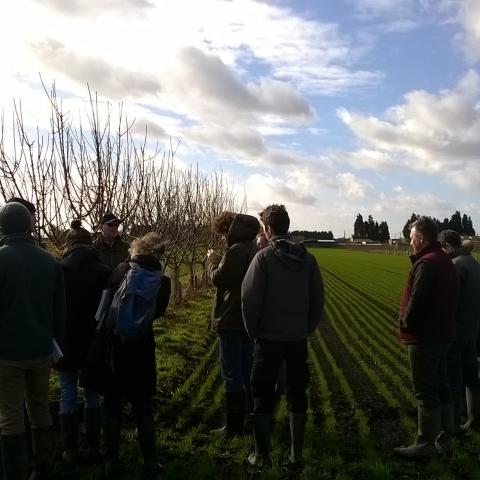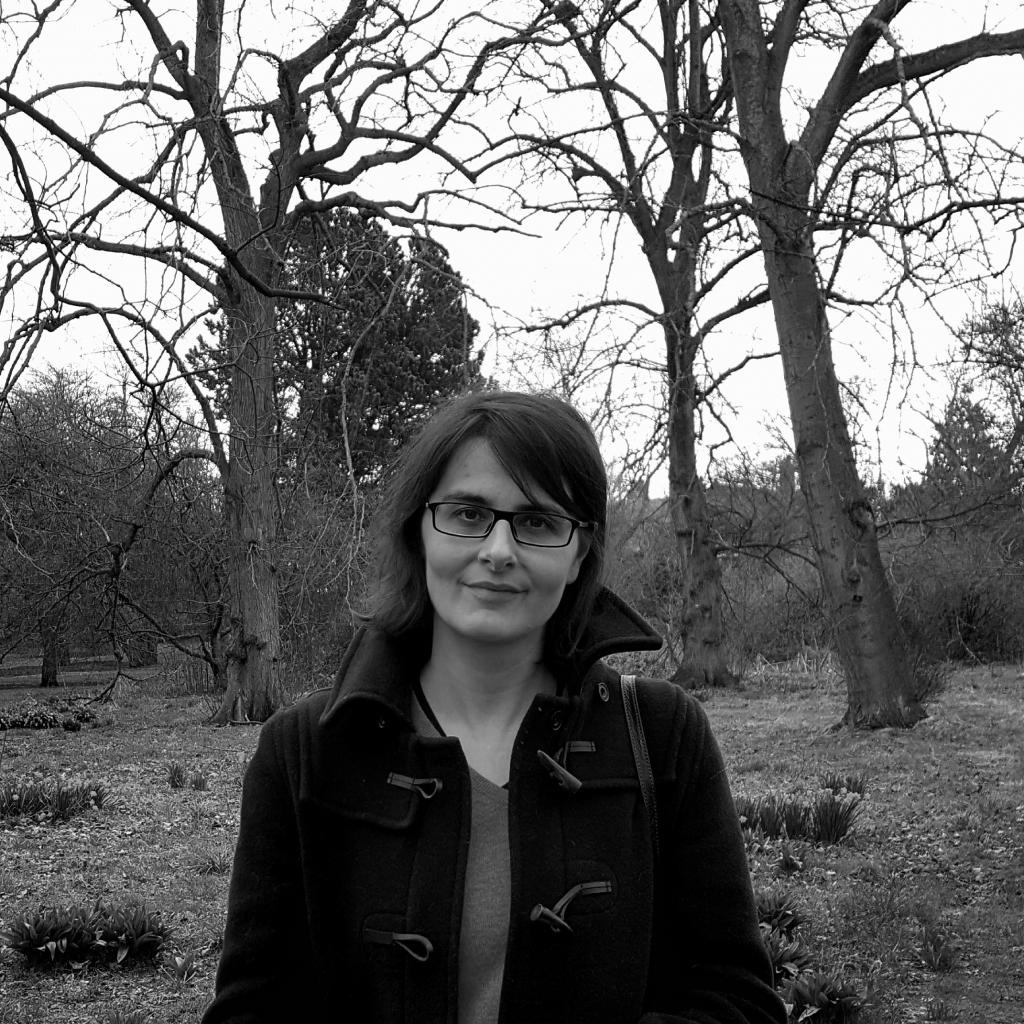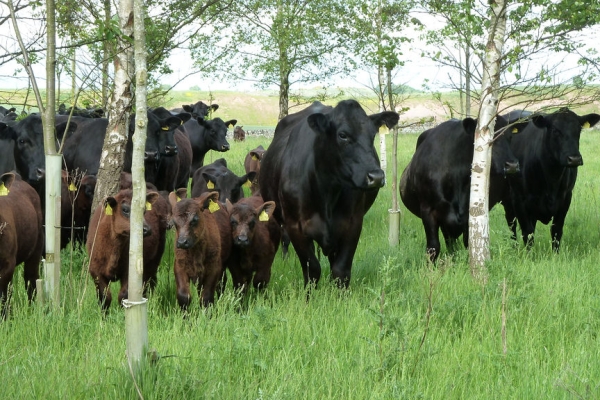Farmers share their experience of transitioning to agroecology
‘Transitions to Agroecological Approaches: Farmers’ experience‘ is a new report that presents the stories of 14 farmers across Scotland, England and Wales who adopted agroecological practices and undertook system change on their farms.
Ensuring that farmland remains productive and resilient is becoming an ever bigger challenge for the future. Amongst the various debates on the future of agriculture, agroecology is increasingly proposed as a way forward. Yet there is still some way to go before agroecology is mainstreamed and more farmers consider agroecological approaches, particularly those involving system change, as a suitable framework for their business.
The Land Use Policy Group (LUPG)* commissions research and advises on rural land use matters such as agriculture and woodlands. Over the last few years, LUPG has been exploring what agroecology means for modern farming in the UK, with a first report on the role of agroecology in sustainable intensification published in 2015, and a lesson-learned exercise looking at policy support for agroecology in France, published in 2017.
It is clear that agroecology offers much potential to deliver economic and environmental sustainability, and there are mechanisms that could be put in place to encourage it. However we also wanted to hear first-hand from farmers who have on the ground experience implementing agroecological approaches on their farms and learn from their journeys. Scottish Natural Heritage, with Natural England, Natural Resources Wales and other agencies in the Land Use Policy Group asked the Organic Research Centre (ORC) and the Game & Wildlife Conservation Trust (GWCT), to investigate the experiences of farmers who undertook a transition to agroecological approaches.
The work was envisaged as case studies, which are particularly suitable to uncover farmers’ perspectives. Researchers at ORC and GWCT interviewed farmers at 14 farms across Scotland, England and Wales, representing a range of approaches including agroforestry, pasture-fed livestock systems, organic, integrated farming with direct drilling, and integration of livestock in arable operations.
Nearly all the farmers were positive about the transition. They were proud of how their farms looked now, especially regarding soil improvements, reduced weed problems, better animal health and improved value to the landscape and biodiversity. A common theme that emerged during the interviews was how agroecological approaches can help farmers seeking a long-term economic perspective on future-proofing their farm.
It was not all positive though, as farmers experienced various challenges. Some lamented that the grant system was not fit for purpose in terms of what they were trying to achieve. Other issues mentioned include self-belief, “the biggest step is getting started’’, being different from the mainstream, as well as financial (e.g. rejected grant applications) and technical problems encountered (e.g. failure to establish crops and trees).
Progression from conventional farming was not necessarily linear. For example, system redesign did not always follow on from improving the efficiency of inputs or the adoption of new technologies. Transition involved an active learning process. Farmers actively sought information and carried out on-farm experiments, sometimes unintentionally, which helped them to gain self-confidence.
After experimenting with agroecology and seeing positive outcomes, farmers were more emboldened to adopt other agroecological practices. They strongly valued opportunities to meet and exchange knowledge with like-minded people in the industry. In fact, the majority of the farmers found the motivation to engage with agroecological approaches in the first place through seeing practical examples and meeting inspirational people, in the UK and abroad.
Farmers reported cognitive shifts in their understanding of farming (“change the mind-set”, “weeds as forage”, “accepting mess”) as well as emotional shifts in enjoying new skills and knowledge and increasing self-reliance (“finding your own agronomic solutions”, “doing your own budgets”). They abandoned some old rules and norms and sought more long-term financial and environmental outcomes. Some also experienced increased personal satisfaction as a result of their change of approach, through new relationships with the wider community.
These farmers’ stories suggest that farming systems which work with nature can be profitable and productive while providing environmental, social and personal benefits. Building on these exchanges with farmers and previous work, the study presents some conclusions on how redesign can be supported. This includes (i) recognise better the importance of inspiration in knowledge transfer and encourage social, peer-to-peer learning and networks related to specific agroecological approaches; (ii) develop support options that encourage the redesign of farming systems (i.e. move beyond organic standards only to mainstreaming agroecological approaches across the farming sector); (iii) develop training and education on agroecological approaches and provide more access to sound financial information about the likely short and long-term impacts on yields, cash-flow, investment and exposure to risks; and (iv) develop accepted indicators of resources and sustainability so that farmers can judge for themselves how well they are performing and how they can manage the risks to their farming business.
On behalf of the LUPG, I acknowledge and thank all the farmers who participated in this study and shared their experiences, as well as the staff at the Organic Research Centre and the Game & Wildlife Conservation Trust for their excellent work.
Cécile writes of herself:
“After studying biology and agricultural sciences in France and in Belgium, I worked for 5 years in Kenya in crop research projects on pigeonpea and cowpea. I came to the UK 15 years ago, and since then I have been working for Scottish Natural Heritage predominantly with agricultural issues but also renewables for a period. I work now as a Land Use Policy Adviser and deal with various policy issues relating to the sustainability of agriculture in Scotland.”
* LUPG comprises Scottish Natural Heritage, Natural England, Natural Resources Wales, Scottish Environment Protection Agency, the Environment Agency and Northern Ireland Environment Agency.
The previous two LUPG reports on agroecology can be found on SNH’s LUPG webpage.
